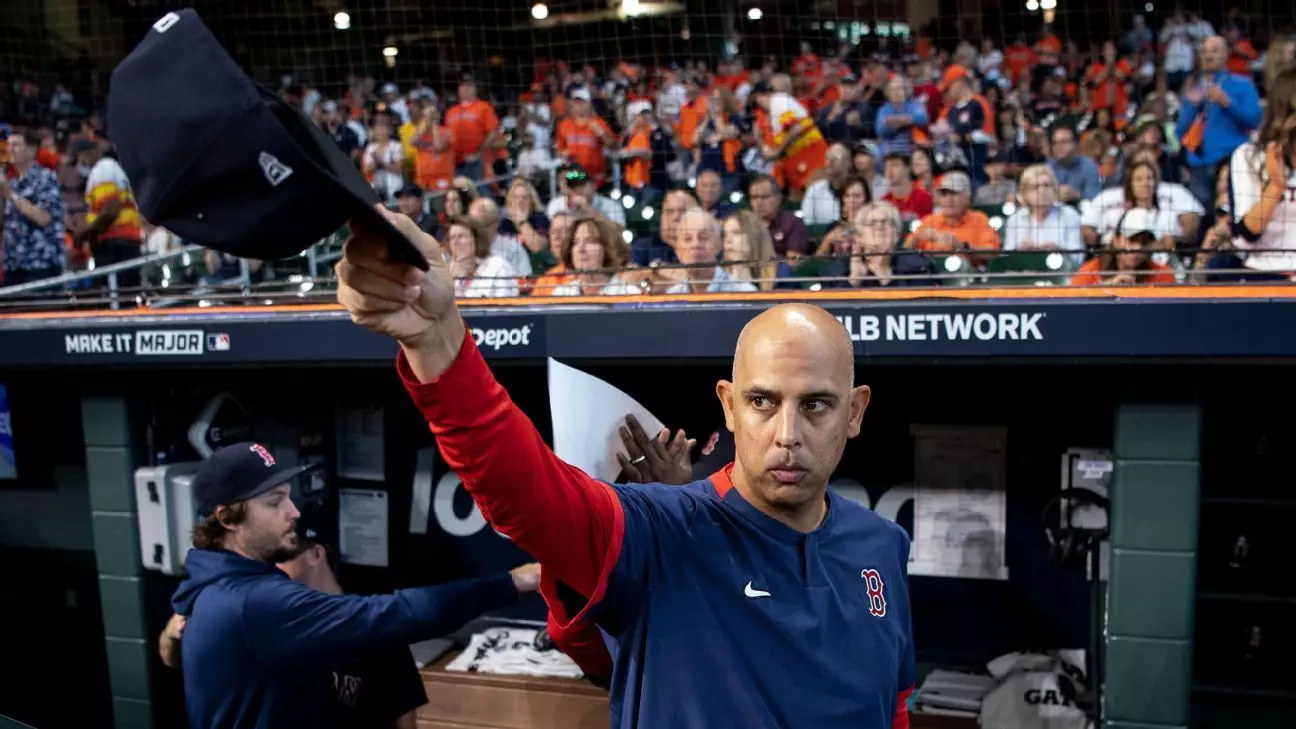In an age where major sporting events occur at a dizzying pace, the issue of fixture congestion is becoming increasingly prominent, especially in soccer. As Boston Red Sox manager Alex Cora recently discovered, comparing the relentless schedules of MLB and Premier League can be an eye-opener for those new to either sport. From his first visit to Anfield in 2019, Cora started observing football’s tireless demands. This conversation has highlighted not merely an anecdotal observation but a widespread concern about athlete wellbeing in both sports, sparking discussions about the need for a re-evaluation of the sporting calendar.
Soccer’s Delicate Balancing Act
The sheer volume of matches in soccer can be staggering. This upcoming 2024-2025 season promises to be the longest in history, encompassing the newly scheduled Club World Cup, which will take place in the United States over an intensive four-week span. The layers of scheduling complexities only increase the pressure on players, many of whom within clubs like Arsenal and Real Madrid are already feeling the strain of fixture overload. Superstars such as Erling Haaland and Kylian Mbappé have voiced their concerns, pointing to the mental and physical toll that excessive gaming schedules impose on top athletes. Cora’s comparison to MLB’s standard 162-game schedule sparks an interesting debate—while baseball certainly has its challenges, one can’t ignore the incessant pressure soccer athletes endure for cup competitions and international games.
The Heavy Price of Ambition
To understand the gravity of fixture congestion, it is crucial to acknowledge the different competitive landscapes of these sports. In soccer, positioning can hinge on the outcome of multiple tournaments, and even a fourth-place finish can be considered triumphant if it yields a spot in the coveted Champions League. The notion that every single match matters imbues every weekend with continuous, heart-pounding drama. This competitive nature, while thrilling for fans, can result in a grueling schedule that leaves players vulnerable to injuries and burnout. When Liverpool captain Virgil van Dijk expressed astonishment over the 162-game MLB season, Cora’s response about soccer’s four simultaneous competitions revealed a shared understanding of the overwhelming demands placed on athletes in both sports.
Call for Reform in Soccer Scheduling
The current situation demands a reevaluation of how soccer leagues, clubs, and regulatory bodies approach scheduling. Prominent figures such as Barcelona’s manager Hansi Flick have called attention to the pressing need for adequate recovery times for players, posing a challenge to both UEFA and FIFA to reconsider their priorities. The landscape has become hypocritical when you think of leagues that prioritize commercial gain at the expense of sustaining athlete health. Flick’s assertion that “it’s necessary that players have three days’ rest” following international breaks highlights the unrealistic expectations placed upon players.
Implications for Players’ Health
Injuries have been alarmingly prevalent due to the heavy demands of fixture lists stretching beyond what players can withstand. The narrative transcends the football pitch; it touches broader societal issues regarding mental health and wellness. The endless grind, evidenced through the recovery struggles of athletes, leaves them open to exhaustion. This prevalent problem requires immediate attention. Athletes in soccer routinely face more than 60 matches in a season, with international fixtures piled on top—exacerbating the burden during peak periods. It raises critical questions: At what cost comes this athlete sacrifice and relentless ambition?
The Global Perspective
Additionally, this issue is not limited to European leagues or the U.S. Major League Baseball but is a global concern encompassing various soccer leagues around the world. The upcoming summer’s Club World Cup will magnify this issue into the spotlight, covering a month with non-stop matches among the top 32 teams. As organizations like FIFA attempt to market soccer globally, they must balance revenue generation with the protection and sustainability of their players. Without a concerted effort, the validity of soccer at any level could diminish, undermining what it means to love the game profoundly.
A Cautionary Tale on Fixture Overload
As the fixture mountains rise, one can only wonder if soccer will heed the warnings of its best players and managers. As seen in Cora’s experience, this cross-pollination of sports offers an opportunity for mutual understanding and best practices that could address serious concerns regarding athlete welfare. The insight gleaned from leaders like Cora and van Dijk sheds light on necessary changes for the betterment of future seasons, ensuring that the thrill of the game does not come at the expense of those who play it. The intensity of competition is essential, but it is equally critical to ensure the players’ well-being remains paramount.

